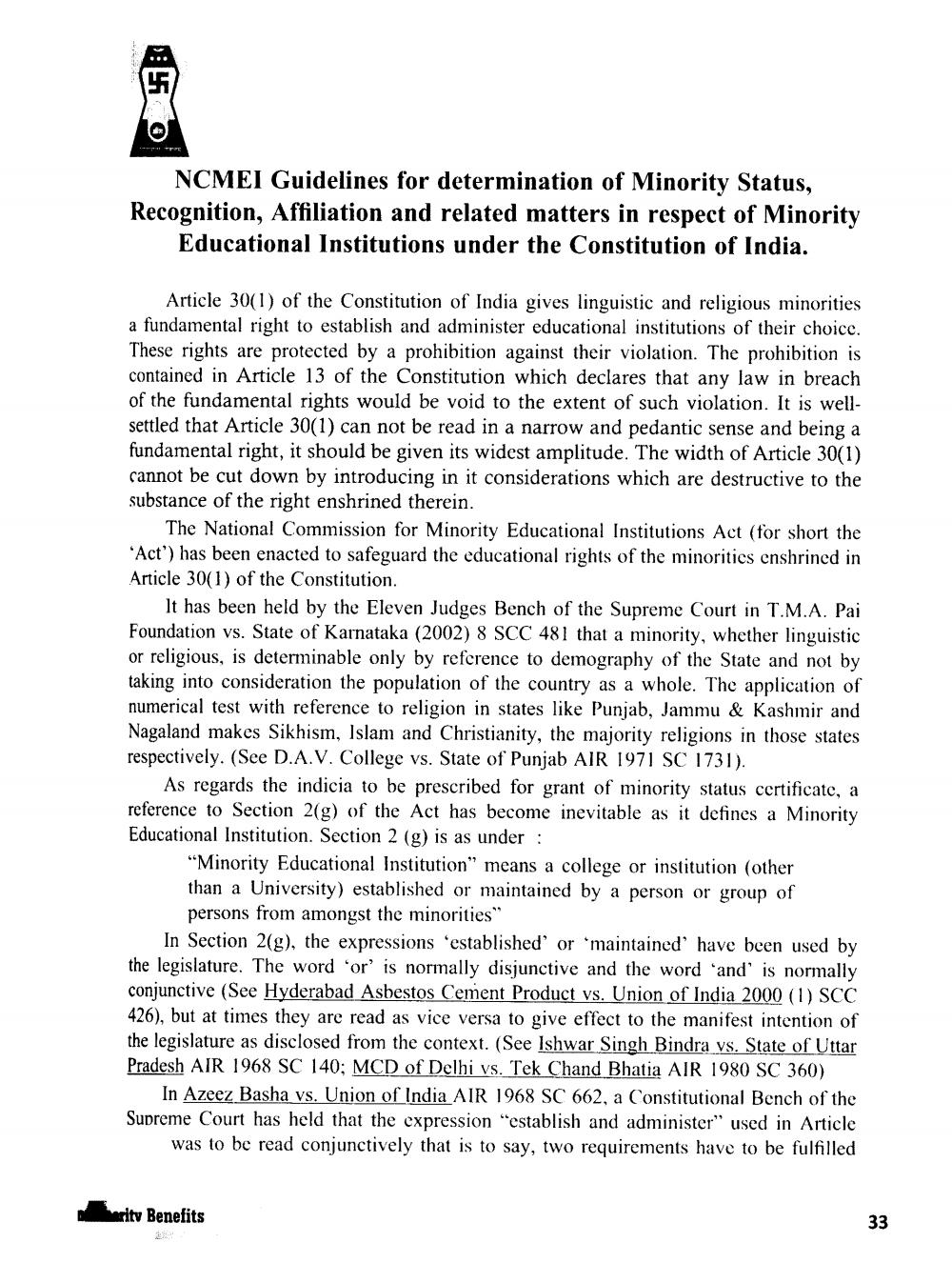________________
NCMEI Guidelines for determination of Minority Status, Recognition, Affiliation and related matters in respect of Minority
Educational Institutions under the Constitution of India.
Article 30(1) of the Constitution of India gives linguistic and religious minorities a fundamental right to establish and administer educational institutions of their choice. These rights are protected by a prohibition against their violation. The prohibition is contained in Article 13 of the Constitution which declares that any law in breach of the fundamental rights would be void to the extent of such violation. It is wellsettled that Article 30(1) can not be read in a narrow and pedantic sense and being a fundamental right, it should be given its widest amplitude. The width of Article 30(1) cannot be cut down by introducing in it considerations which are destructive to the substance of the right enshrined therein.
The National Commission for Minority Educational Institutions Act (for short the *Act) has been enacted to safeguard the educational rights of the minorities enshrined in Article 30(1) of the Constitution.
It has been held by the Eleven Judges Bench of the Supreme Court in T.M.A. Pai Foundation vs. State of Karnataka (2002) 8 SCC 481 that a minority, whether linguistic or religious, is determinable only by reference to demography of the State and not by taking into consideration the population of the country as a whole. The application of numerical test with reference to religion in states like Punjab, Jammu & Kashmir and Nagaland makes Sikhism, Islam and Christianity, the majority religions in those states respectively. (See D.A.V. College vs. State of Punjab AIR 1971 SC 1731).
As regards the indicia to be prescribed for grant of minority status certificate, a reference to Section 2(g) of the Act has become inevitable as it defines a Minority Educational Institution. Section 2 (g) is as under:
“Minority Educational Institution" means a college or institution (other than a University) established or maintained by a person or group of
persons from amongst the minorities
In Section 2(g), the expressions established' or 'maintained' have been used by the legislature. The word 'or' is normally disjunctive and the word 'and' is normally conjunctive (See Hyderabad Asbestos Cement Product vs. Union of India 2000 (1) SCC 426), but at times they are read as vice versa to give effect to the manifest intention of the legislature as disclosed from the context. (See Ishwar Singh Bindra vs. State of Uttar Pradesh AIR 1968 SC 140; MCD of Delhi vs. Tek Chand Bhatia AIR 1980 SC 360)
In Azeez Basha vs. Union of India AIR 1968 SC 662, a Constitutional Bench of the Supreme Court has held that the expression establish and administer” used in Article
was to be read conjunctively that is to say, two requirements have to be fulfilled
erity Benefits
33




